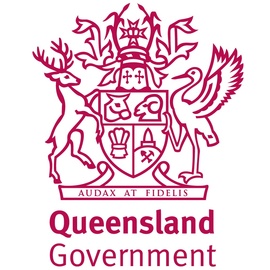Developed by Scientia Associate Professor Rebecca Collie from UNSW’s School of Education, the Tripartite Occupational Well-Being Scale zeros in on three types of wellbeing critical to teachers’ ‘healthy and effective’ functioning in schools:
- Vitality – the energy and vibrancy that teachers feel in their work;
- Engagement – the dedication and exertion that teachers channel into their job, and;
- Professional growth – teachers’ commitment to enhancing their expertise and competencies.
Collie tells EducationHQ these three factors stood out to her, not only in her experience as a primary teacher, but later as a researcher, when she noticed they appeared ‘again and again and again’ across multiple studies into teacher wellbeing.
“These factors combine to represent a teacher [who is] feeling good, but also one who is functioning well at work,” Collie says.
When burnout strikes, all three domains are adversely impacted, the expert explains.
“Some of the research I’ve done has shown that when teachers are experiencing burnout, they report very low vitality, that really takes a hit – that’s probably the strongest negative association.
“But we also can see that their engagement dips as well, because they’re exhausted.
“So, it’s harder to put that effort in on a day-to-day basis, and they may be less likely to be planning and investing effort into their ongoing professional growth.
“We see burnout just impacts all three of them.”
The first red flag teachers might notice is extreme exhaustion, Collie says. And if this is allowed to linger for some time, self-preservation measures begin to kick in.
“We get that to that point where teachers start detaching [from their work]. It’s just a natural way of protecting oneself. Usually, it’s the exhaustion that comes first.”
Collie’s research has found teachers’ level of wellbeing declines over the course of a school term, regardless of their age, gender and experience.
However, there were some minor variations which emerged from the data. For one, female teachers had lower vitality at the start of a term, but higher engagement, than male teachers.
More experienced educators, meanwhile, started the term with higher engagement than their less experienced counterparts.

Rebecca Collie found when principals are ‘autonomy supportive’ with their teachers, better wellbeing markers result.
Collie says if teachers could come to the first day of each term with a higher level of wellbeing this would ‘stand them in better stead’ for the weeks to come.
“We see – and research supports this – that when teachers go on vacation, they go on holidays, their wellbeing increases and their burnout decreases,” she says.
“And so teachers typically begin the school year and the start of a term from a higher level, but as the term goes on, we see this dropping off [in] wellbeing … when the inevitable challenges of a busy term (take hold).
“Helping teachers to begin term from a higher level means they can withstand those demands or challenges that just do occur as part of teachers’ work.”
This is where the Tripartite Occupational Well-Being Scale comes in.
Collie says the tool could prove useful for school leaders in understanding how their teachers are faring at particular points in the school year, and then tailoring their response to address the most problematic areas.
“They could be … looking at areas that perhaps their staff in general are not doing so well on and making that a focus, whether that’s engagement or vitality or professional growth,” she notes.
Collie has also held a research lens over how teachers’ perceptions of their school leadership impacts upon their psychological health.
She has found when principals are ‘autonomy supportive’, whereby they help teachers to feel trusted, self-determined and feel a sense of agency or initiative in their work, better wellbeing markers result.
“[When] teachers feel like they have a say, and they get input in decisions, that type of leadership – which is really trusting, but also supportive – this helps teachers to feel to be more motivated and to be able to experience greater wellbeing.
“And also, they’re more likely to be committed to their job and less likely to want to look for other work,” Collie shared.
Is it possible for teachers to fully recover from burnout while still manning the classroom full-time?
Collie said it really depends on how far the condition has progressed – and what measures school leaders put in place to protect workloads from becoming overblown.
“There are times of the year that are really busy, and it’s inevitable to experience a little bit of exhaustion.
“But hopefully teachers have that opportunity to recover, whether that’s through holidays, or whether it’s through, for example, meeting-free weeks, things that the school can do to help teachers to manage those big workloads.”
Leaders should be seeking out ways to make teachers’ schedules more ‘streamlined’, Collie adds.
“For example, some schools [have mentioned] they hire additional people to help with supervision on excursions or on sports carnivals, and things like that, so that teachers can get more planning time.
“Those types of kinds of ‘rearranging of the schedule’ (measures) can be really helpful.
"Of course, it relies on budget, but anything that principals can do, school leaders can do, to help reduce that load is going to be beneficial for the whole school, I think.”
During testing times, Collie advises teachers to ensure they carve out time to switch off from work.
“Because if you’re going home but you’re thinking about work all the time, you don’t get that break, you don’t get that chance to recuperate.”
Despite the dire state of teacher wellbeing and attrition across Australia and even internationally, the researcher is ‘quite hopeful’ that teachers’ wellbeing will collectively improve in the coming years.
“I think there’s a lot more attention on this issue than there was even three years ago. There’s a lot more policies being brought in. There’s awareness. And I think this is just the start.
“So, I’m hopeful that things will improve, because we’re really recognising now just how critical teacher wellbeing is for the success of a whole school,” Collie says.















